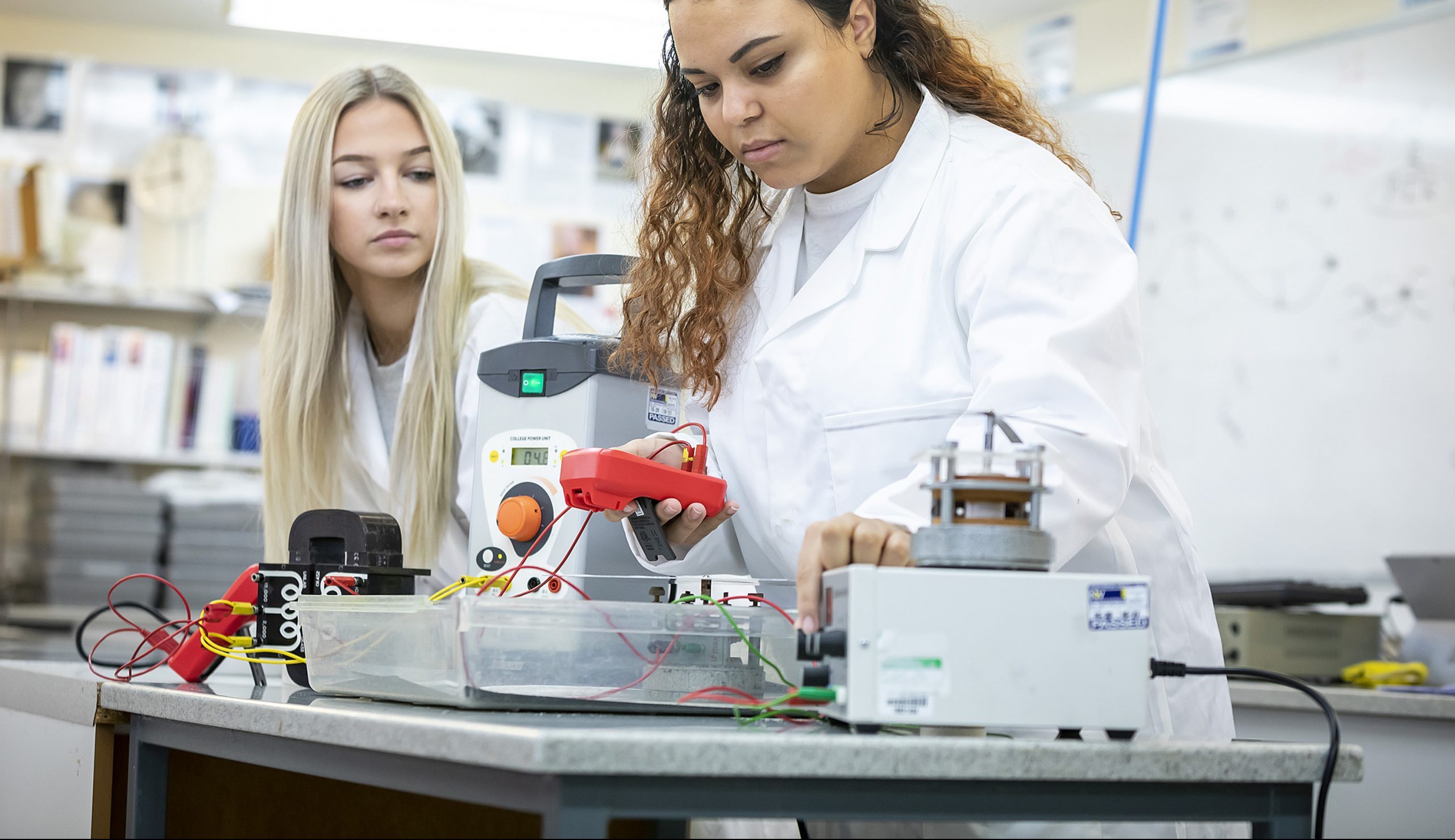Five GCSEs at grade 9–4, including a 6 or above in Mathematics, Additional Science or Physics. GCSE English is essential.
IT IS ADVISED THAT A LEVEL PHYSICS STUDENTS TAKE A LEVEL MATHS ALONGSIDE THEIR PHYSICS COURSE.

Physics is for the curious, and those eager to learn more about the fundamental nature and laws of the Universe. In Physics, we study the tiniest particles known to exist (in Atomic and Particle Physics – Year One) and the very largest structures in the Universe (in Astrophysics – Year Two).
The study of physics is applied everywhere including the development of sustainable energy, in communications technology, transport technology, the design and development of sports equipment, and in hospitals in the diagnosis and treatment of disease. At Andover College we take a practical approach to the course uncovering fundamental physical relationships through frequent practical investigations.
Five GCSEs at grade 9–4, including a 6 or above in Mathematics, Additional Science or Physics. GCSE English is essential.
IT IS ADVISED THAT A LEVEL PHYSICS STUDENTS TAKE A LEVEL MATHS ALONGSIDE THEIR PHYSICS COURSE.
Year One: Motion (kinematics), Newton’s laws and momentum (dynamics), moments of force, energy, electricity, waves, materials science, the quantum realm, and atomic and particle physics
In Year Two: Circular motion and simple harmonic motion, thermal physics and ideal gases, electromagnetism, electricity and capacitance, E = mc2 and nuclear physics, and astrophysics.
An additional practical competency assessment will require the completion of a number of core practical investigations in lessons.
AS Physics (optional) – two exams at the end of Year One.
A-level Physics – three exams at the end of Year Two
Practical work is assessed through questions on written examinations, and through a separate Practical Endorsement.
Physics lends itself to a number of different career paths in science and technology, aeronautics, aerospace and engineering, architecture, medicine and astronomy, the arts and sport.
You will go on a number of trips and excursions, including to the Rutherford Appleton Laboratory, the Science and Natural History Museums and CERN (in Switzerland).
We have a large and well-equipped Physics laboratory.